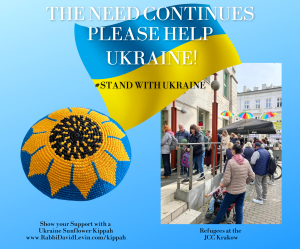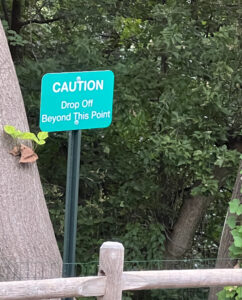Category: Prayer
Shabbat Shalom
Hashkiveinu is the second prayer we utter after the Shema, asking the Divine for protection through the darkness of the night and our vulnerability as we sleep.
This rendition is sung by Cantor Magda Fishman.
Shabbat Shalom
Shabbat Shalom
A prayer for us all this Shabbat
Shabbat Shalom
Shabbat Shalom
The prayer, performed by Andrea Bocelli and Ilaria Della Bidia, is a wonderful way to bring in this Shabbat. With all of the turmoil and challenges to peace here, Israel, and around the world, the Prayer is our hope for this Shabbat.
I pray you’ll be our eyes
And watch us where we go
And help us to be wise
In times when we don’t know
Let this be our prayer
When we lose our way
Lead us to a place
Guide us with your grace
To a place where we’ll be safe.
I pray we’ll find your light
I pray we’ll find your light
And hold it in our hearts
And hold it in our hearts
When stars go out each night
When the stars go out each night
Remind us where you are.
Let this be our prayer
Let this be our prayer
When shadows fill our day
When shadows fill our day
Lead us to a place
Guide us with your grace
To a place where we’ll be safe.
A world where pain and
sorrow will be ended
And every heart that’s
broken will be mended
And we’ll remember we
are all God’s children
Reaching out to touch you
Reaching to the sky.
We ask that life be kind
We ask that life be kind
And watch us from above
And watch us from above
We hope each soul will find
We hope each soul will find
Another soul to love
Another soul to love.
Let this be our prayer
Let this be our prayer
Just like every child.
Just like every child.
Needs to find a place
Guide us with your grace.
With your grace
Give us faith so we’ll be safe
Needs to find a place
Guide us with your grace.
Give us faith so we’ll be safe
Coming down from the High Holidays
Drop off Beyond this Point!
Our synagogue is built into the side of a large steep hill. We have a beautiful ya’ar, a cleared garden-Forrest area where we can pray surrounded by the beauty of nature. Our Rosh Hashannah morning service was more meaningful in this beautiful space.
We gathered at the edge of the garden to listen to the Shofar; the wood fence kept us from the drop-off into the lush wooded vale below. And the sign said, “Caution, Drop off Beyond this Point.”
To those of a certain age, it is reminiscent of the 1971 song by the Five Man Electric Band, Sign, Sign, Everywhere a Sign. But our sign was not about keeping others out; our sign was about protecting us, keeping us safe from falling and getting hurt. But there is a metaphorical message. What do you take with you when you leave the sacred space and descend back into the regular and mundane?
I imagine such a sign would have been appropriate at the Temple Mount. When you ascended, you performed many rituals and experienced those special moments within the sacred and holy space. Such a sign would serve as notice that descending and leaving the sacred Temple’s ground carried risks. How much of the divine and sacred would you take with you?
I vividly recall walking along the southern ramparts of the Old City walls. To the right was the interior space of Jerusalem and the Temple Mount above; to the left, the bottom of the wall and valley so far below. I walked the narrow path remembering the line from Deuteronomy, “I give you a choice between life and death….” To the right was the sacred Mount, and to the left was a long fall to the bottom. It was harrowing, but I safely found my way to the stairs and ground level. But what did I take with me?
It is easy to be swept up and immersed within sacred, holy spaces and moments. But when we go back out into the world is the actual test of how much that particular special time changed us. Jacob encountered the Angel and God, emerging forever changed, with a new name and a new mission as our Patriarch. Moses was forever changed after the encounter with the burning bush. He left that place forever changed, taking the holiness he encountered with him to lead his people. Can our sacred encounters serve as a place for personal nurture and an opportunity to bring holiness with us back into the world? Caution, Drop off beyond this point is the sign letting us know we can be safe if we carry the sacred from our metaphorical hilltop to the world below.
And the sign said
“Everybody welcome
Come in, kneel down and pray.”
But when they passed around the plate at the end of it all
I didn’t have a penny to pay
So I got me a pen and a paper
And I made up my own little sign
I said, “Thank you, Lord, for thinkin’ ’bout me
I’m alive and doin’ fine”
Shabbat Shalom
Shabbat Shalom
This special Shabbat, between Rosh Hashannah and Yom Kippur, is Shabbat Shuva, the Shabbat of Repentance & Return.
Shabbat Shalom
Shabbat Shalom and L’Shana Tova
Sometimes making it through a year is heroic. The struggles of day-to-day life, frightening world crises, fraught personal relationships, and even making a living presented overwhelming challenges this the past y.ear
For me, Leonard Cohen’s Halleluyah is an anthem speaking to triumph, but like most hard-fought battles, the victorious also depart the field scarred and sometimes bloody. Victory is bittersweet and comes at the cost of leaving us forever changed.
As we reflect on the past year, there were moments of accomplishment and hardship. As we seek the forgiveness of others, as our tradition requires, we must remember to forgive ourselves. We often fell short of the mark and were less than our best selves. Understanding that and seeking to do better are the first steps to returning to a place where the Days of Awe become an opportunity to start afresh. Forgiveness that admits our shortcomings and comforts us while encouraging us to do better gives us the strength and vision to make the new year one of hope and possibilities.
L’Shanah Tova Tikateivu, May you be inscribed in the book of life.
Shabbat Shalom
For this final Shabbat of Elul, I share Leonard Cohen’s Halleluyah, among the most moving and beautiful song poems ever written. This version is in Hebrew.
L’Shana Tova
Shabbat Shalom
Billy Preston sings My Sweet Lord as we welcome the third Shabbat of Elul
Shabbat Shalom
Shabbat Shalom
The tensions between generations has existed, likely from the beginning. Cat Stevens (Yusuf), a favorite troubadour of my youth, captures the issue in his iconic song, Father & Son. As we struggle our differences, let’s also treasure the things that link us together.
Shabbat Shalom



